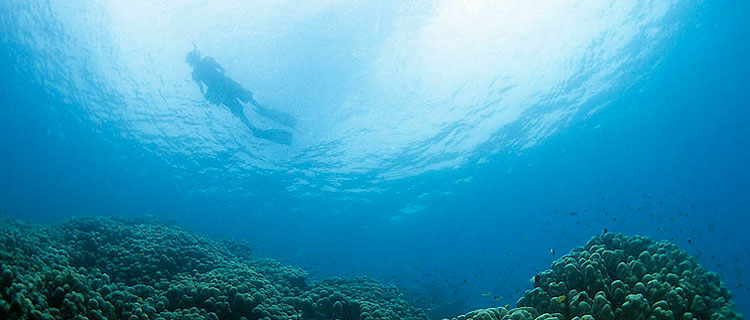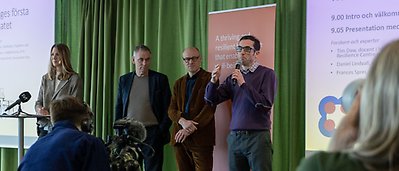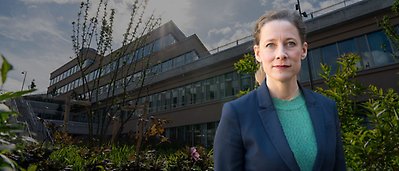
Ecosystems modelled from the outside
Seminar with Dr. Benjamin Planque, 9 March 2013
This results in a race for complexity in which additional processes are constantly added to existing models in order to better reproduce the complex dynamics observed in the real world.
An alternative approach is to acknowledge the complexity, adaptability and non-linearity of ecosystems without trying to explicitly model the complex processes generating them.
Rather than modeling from the 'inside', i.e. by representing the intricate processes within the ecosystem, one can model from the 'outside' by focusing on the constraints that limit the system dynamics. In this modeling approach, complex processes and their interactions are simulated with stochastic (i.e. random) processes whilst the system dynamics is constrained by simple rules.
In this Stockholm seminar Benjamin Planque will show an application of this approach, using a stochastic dynamic food web model (SDF) for the Barents Sea. This simple model displays many features of more complex foodweb models, including apparent regime shifts. The SDF can serve as a reference to study the resilience of marine ecosystems.
About Benjamin Planque
Benjamin Planque holds a PhD from the University Pierre et Marie Curie (Paris, France, 1996). He did his PhD thesis on the spatial and temporal fluctuations of crustacean populations in the North Atlantic. His research has focused on zooplankton, ichtyoplankton and fish spatial and temporal variations in relation to environmental fluctuations and fishing.
He currently holds a research position at the Institute of Marine Research in Tromsø (Norway) where he works on the ecology of redfishes and coordinates the BarEcoRe project on the resilience of the Barents Sea ecosystem.
Linné Hall, the Royal Swedish Academy of Sciences, Lilla Frescativägen 4, Stockholm
Feel free to post or circulate the announcement. The seminar is open to all interested and free of charge. No registration needed.
LATEST NEWS
-

General news | 2024-04-24
Greentopia: music and sports events, a highway to sustainability?
Can music and sports events help societal transformations toward sustainability? During one of Sweden's premier festivals, Way Out West, the Centre co-hosts a climate summit to help answer that question.
-

General news | 2024-04-18
Centre research listed among top ten of most cited papers in policy
Three scientific works with heavy involvement from the Stockholm Resilience Centre have been included on a list of the ten most cited non-economics papers in policy documents by Nature
-

General news | 2024-04-10
Centre receives extended funding from Mistra for food research
The research programme Mistra Food Futures, in which the Centre is a partner, receives SEK 64 million for the upcoming four and a half years
-

Educational news | 2024-04-09
New planetary boundary game bridges education and climate action
A new innovative computer game lets Danish school children learn about key research on planetary boundaries
-

General news | 2024-03-08
First Swedish national citizens’ assembly on climate kicks off
How should Sweden lower its emissions to be in line with the Paris Agreement? This question is at the core as Sweden’s first national citizens’ assembly on climate starts on 9 March 2024
-

General news | 2024-03-08
Lisen Schultz listed as one of the most influential women in business in Sweden
Centre deputy director Lisen Schultz, director of the Executive Programme on Resilience Thinking, has been included on the list of most influential women within the Swedish business sector





